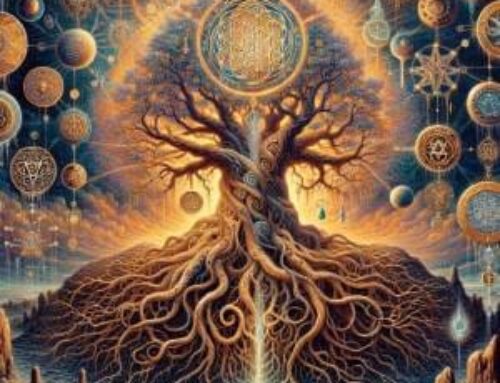Contents
Introduction to “Alchemy Definition”
According to “Alchemy Definition” Alchemy is a profound and ancient practice that intertwines the transformation of matter with the spiritual evolution of the individual. Rooted in the mysteries of nature, alchemy offers a symbolic language to describe mental and physical changes on the spiritual path. This article delves into the essence of alchemy, exploring its definition, core principles, and transformative practices.
“Alchemy definition” often shrouded in mystery and misinterpretation, is more than the fabled attempt to transmute base metals into gold. It is a symbolic representation of the spiritual journey, illustrating the metamorphosis of the ordinary human into a being of higher consciousness. The term “alchemy” derives from the Arabic “al-kimiya,” meaning “the art of black,” alluding to its esoteric and hidden nature, accessible only to the initiated. Historically, alchemists sought not only material transformation but also spiritual enlightenment, believing that physical changes mirrored inner transformations. The ultimate goal of alchemy is the creation of the Philosopher’s Stone, a metaphor for achieving spiritual perfection and enlightenment, rather than merely a physical substance.

The Basic Principles of Alchemy
Alchemy is underpinned by a deep spiritual connection between the alchemist and the matter they work with. This practice emphasizes the unity of spirit and matter, requiring an intimate understanding of nature’s laws. Central to alchemy is the concept of the Prima Materia, or the primordial substance from which all matter originates. The alchemist’s task is to purify and transform this Prima Materia, reflecting the inner work of self-purification and enlightenment. The Philosopher’s Stone, often considered the pinnacle of alchemical achievement, symbolizes the ultimate goal of this transformative process, representing the perfection of both material and spiritual realms.
Alchemy’s processes and symbols are designed to guide the practitioner through stages of spiritual development. The Tria Prima, or three prime substances, are fundamental: Sulphur (representing the soul and divine spark), Mercury (the mind and fluidity), and Salt (the body and physicality). These elements correspond to the alchemist’s psychological and spiritual components, illustrating the need for balance and integration in the pursuit of enlightenment. This holistic approach underscores that true alchemical transformation is both a spiritual and material endeavor.
Practical Applications in Alchemical Work
The alchemical laboratory, whether a physical space or a metaphor for life itself, is where the transformative processes occur. In this context, every aspect of life, from daily routines to significant events, serves as a component of the alchemist’s work. The Athanor, a special furnace in alchemy, symbolizes the sustained and controlled effort required for transformation. It represents the internal conditions necessary for spiritual and material changes, emphasizing the importance of perseverance and steady effort in alchemical practices.
According to “Alchemy defintion”, Alchemy teaches that transformation is a gradual process of refinement and purification. This is evident in the symbolic stages of the Great Work: Nigredo (blackening or decomposition), Albedo (whitening or purification), and Rubedo (reddening or enlightenment). These stages reflect the alchemist’s journey from ignorance through purification to ultimate enlightenment. Each stage requires the practitioner to confront and transform different aspects of the self, mirroring the process of achieving inner and outer harmony.
Conclusion
“Alchemy definition” reveals that Alchemy is far more than an archaic pursuit of material wealth, embodying a deeper quest for spiritual transformation and enlightenment.; it is a rich, symbolic tradition that offers profound insights into the nature of existence and the path to spiritual enlightenment. By understanding and engaging with alchemical principles, practitioners can achieve significant personal transformation, aligning themselves with the deeper truths of the universe.
The journey of alchemy encourages us to purify and perfect not only the materials we work with but also our inner selves, leading to a harmonious and enlightened existence. The Hermetic Academy invites all sincere seekers to explore these timeless teachings and embark on their path of transformation, guided by the wisdom of the alchemists.
FAQ- Alchemy Definition
1. What is the primary goal of alchemy?
A: The primary goal of alchemy is the transformation of both matter and the self, aiming to achieve spiritual enlightenment and material perfection. This is symbolized by the creation of the Philosopher’s Stone, which represents ultimate wisdom and the unity of spirit and matter.
2. How does alchemy relate to personal transformation?
A: Alchemy relates to personal transformation by using the processes of material transmutation as metaphors for spiritual growth. Practitioners work on purifying and perfecting their inner selves just as they would purify and transform base metals into noble ones.
3. What are the Tria Prima in alchemy?
A: The Tria Prima, or three prime substances in alchemy, are Sulphur (self-consciousness), Mercury (super-consciousness), and Salt (sub-consciousness). These elements represent the fundamental components of the alchemist’s work, illustrating the need for balance and integration in the pursuit of transformation.
4. What is the significance of the alchemical stages Nigredo, Albedo, and Rubedo?
A: Nigredo, Albedo, and Rubedo represent the stages of alchemical transformation: Nigredo is the stage of decomposition and confronting one’s shadow, Albedo is the purification stage, and Rubedo is the stage of enlightenment and integration. These stages mirror the process of inner spiritual development.
5. Where can I learn more about alchemical practices?
A: To delve deeper into alchemical practices and their transformative potential, consider studying with the Hermetic Academy. They offer resources and guidance for those seeking to understand and apply the ancient wisdom of alchemy in their lives.





